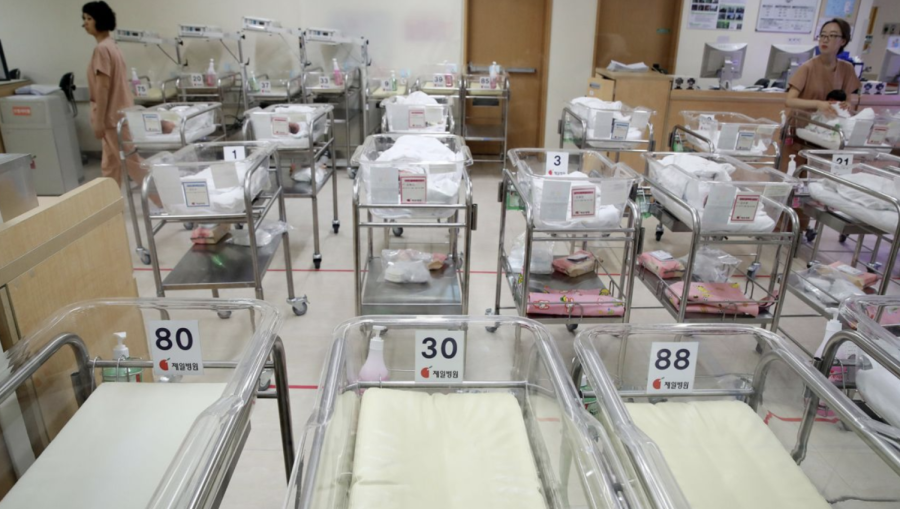South Korea hits record low birthrate
South Korea recently revealed that they have broken its record of 0.84 births per woman in 2021 with 0.78. The global average number of births per woman is 2.3, with 2.0 being the threshold rate for a nation to maintain a stable population.
This phenomenon of crashing birth rates is not limited only to Korea, with neighboring East Asian nations of China and Japan also having low birth rates of 1.28 and 1.34, respectively. It is widely accepted that as a nation develops, the birth rate lowers directly with infant mortality and inversely with life expectancy, which is why the global birth rate has fallen from 5.0 in 1963 However, this alone is not enough to explain South Korea’s exceptionally low birth rate.
“The primary factor causing birth rates to drastically fall is the hypercompetitive nature of contemporary Korean society. There are issues regarding education and the job market as well as high living costs,” Peter Kim (12), a Contemporary Asian Studies student, said. “These social factors induce many young people to avert having children as they are more focused on obtaining a higher degree of education, finding a reliable job, or managing a stable financial standing.”
South Korea’s shrinking birth rate and population have significant implications for its economy, military, and society in the future as its population ages. There will be a lower percentage of the population eligible to work and higher percentages needing government assistance. Though the Korean government has taken some actions such as providing free childcare and a monthly allowance, it remains to be seen whether these measures will prevent the population from declining further.

Paul is a senior managing editor for Tiger Times. He likes running at night and enjoys the night city view. He watches way too much Youtube and loves watching...

